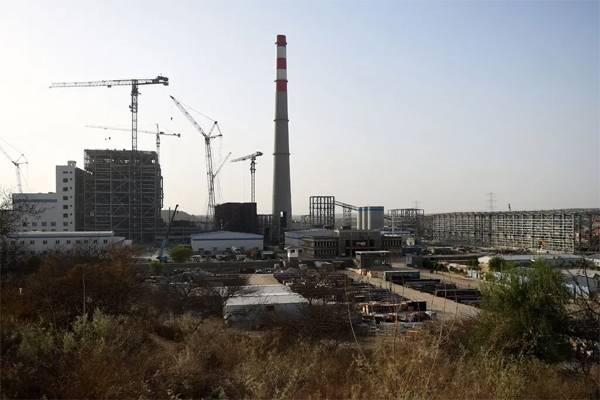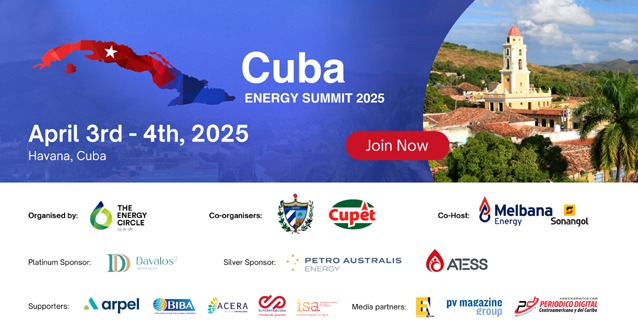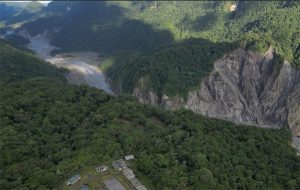John Kerry, the country’s climate envoy, was expected to announce the carbon offset plan on Wednesday. Payments from companies would go to countries struggling to adopt renewable energy.

Lisa Friedman, NYTimes
WASHINGTON
EnergiesNet.com 11 11 2022
The Biden administration wants corporations to fund renewable energy projects in developing countries in a way that allows the companies to count resulting cuts in greenhouse gases against their own climate goals.
John Kerry, President Biden’s climate envoy, intends to announce on Wednesday a program that his advisers say could inject tens of billions of private dollars into the economies of developing countries struggling to replace coal, oil and gas with wind, solar and other renewable power.
The program, known in climate circles as a carbon offset plan, is the product of months of discussions between Mr. Kerry and major corporations as well as philanthropic groups like the Rockefeller Foundation and the Bezos Earth Fund, according to several people involved in the talks who were not authorized to discuss them publicly.
“We need to increase finance by orders of magnitude from what it is now,” said Nathaniel Keohane, the president of the Center for Climate and Energy Solutions, an environmental group that is supporting the plan.
But the initiative has been met with skepticism from some European nations and by the United Nations secretary general’s staff because they felt the plan lacked details and was rushed, according to multiple people familiar with the discussions.
The Biden administration wants corporations to fund renewable energy projects in developing countries in a way that allows the companies to count resulting cuts in greenhouse gases against their own climate goals.
John Kerry, President Biden’s climate envoy, intends to announce on Wednesday a program that his advisers say could inject tens of billions of private dollars into the economies of developing countries struggling to replace coal, oil and gas with wind, solar and other renewable power.
The program, known in climate circles as a carbon offset plan, is the product of months of discussions between Mr. Kerry and major corporations as well as philanthropic groups like the Rockefeller Foundation and the Bezos Earth Fund, according to several people involved in the talks who were not authorized to discuss them publicly.
“We need to increase finance by orders of magnitude from what it is now,” said Nathaniel Keohane, the president of the Center for Climate and Energy Solutions, an environmental group that is supporting the plan.
But the initiative has been met with skepticism from some European nations and by the United Nations secretary general’s staff because they felt the plan lacked details and was rushed, according to multiple people familiar with the discussions.
Some influential environmental groups in the United States that were briefed by the State Department on the strategy, including the Natural Resources Defense Council and the World Resources Institute, were not supporting the plan either because they feared it could actually undermine efforts to drive down global emissions to zero, activists said.
Activists said that, as other nations are stepping up to offer public money to grapple with climate change, the Biden administration, facing the prospect of Republicans making gains in Tuesday’s midterm elections and blocking new appropriations, has stayed silent about any plans to deliver funding.
“Carbon offsets have no place in a world already on fire, under water and facing mounting climate losses and damage,” said Rachel Cleetus, climate policy director for the Union of Concerned Scientists, an environmental group.
The Energy Transition Accelerator, as the program is called, is expected to be finalized over the coming year, according to a one-page confidential draft of the plan obtained by The New York Times.
According to an administration official, the strategy involves enticing companies that have made climate pledges to purchase carbon offsets — essentially credits for their greenhouse gas pollution. The money would go toward driving down emissions in a country’s power sector, developing renewable energy and building resilience to climate impacts. Companies in turn would receive credit for some of the emissions they had pledged to reduce.
While it is still unclear what countries might join up, it is aimed at places like South Africa and Indonesia that have been struggling to transition away from fossil fuels.
The design is unique. Rather than use offsets to fund individual projects, the program requires countries or provinces to develop emissions plans in order to attract investors.
That is aimed at preventing problems that have dogged carbon market plans in the past, in which a polluting company might close a fossil fuel plant in one location, earn credits for doing so, and then open a similar plant elsewhere, the administration official said.
One key feature of the new program is that fossil fuel companies will not be allowed to join, at least initially, the administration official said. That’s because of concerns that oil and gas companies could claim to be improving their performance while continuing to produce emissions-generating fossil fuels.
Supporters said they were working to ensure the plan has rigorous standards but argued the private sector needs to play a role.
“If we’re going to decommission coal plants, we believe voluntary carbon markets have a role to play,” Stacie Cobbs, a spokeswoman for the Bezos Earth Fund said in a statement.
Lisa Friedman reports on federal climate and environmental policy from Washington. She has broken multiple stories about the Trump administration’s efforts to repeal climate change regulations and limit the use of science in policymaking. @LFFriedman
nytimes.com 11 08 2022












